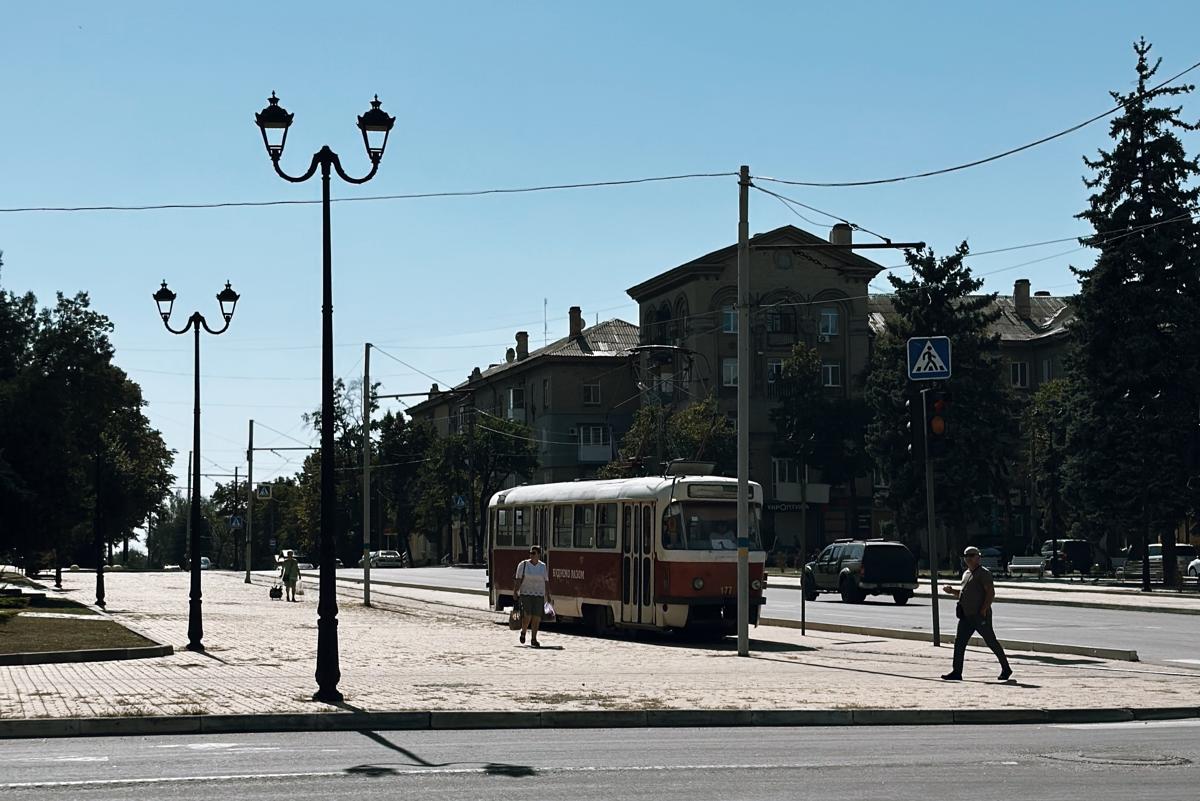
Druzhkivka. The City of Destroyed Memories
Due to the approaching front line and constant shelling, a mandatory evacuation of families with children has already been announced in Druzhkivka. The city is emptying, but life continues here
Read moreEvery time I see the news about the air strikes in the city, somewhere inside, a puzzle is breaking down. For some, it's just another ruin. For me, it's minus one childhood memory.

The city I wanted to leave so badly seems to be giving a second chance to our relationship. As the front line approaches, I feel more and more acutely that I have no emotional connection to the past. Almost all the people and places from my childhood are now out of reach. And only the empty, scarred streets preserve the remnants of blocked memories.
Every time I see the air strikes in the city on the news, somewhere inside a puzzle is breaking down. For some, it's just another ruin, creepy footage on the news outlets. For me, it's minus one childhood memory.


The kindergarten, where I interrupted quiet hours and received my first concussion, the sports palace, where I started running (and hated long runs), the machine-building plant, where my father worked, and the culture house of this plant, where they showed strange children's performances, were destroyed by Russians here. This is the leaky building of the bank, to which we hopelessly took the remains of our savings, dramatically eaten by a cat. And across the street, the damaged center for children's and youth creativity, where, since kindergarten, I explored all possible sections and circles.





Since the morning, the city has been covered in smog, as if after another shelling. Despite the air alert, janitors are cleaning the streets, and elderly people in the market are selling freshly cut grapes, all local, of any variety you want.
The square, which once bustled with life, where festive fairs and concerts were held, is now empty. Minibuses run with about the same frequency as the Kyiv metro in the first month of full-scale war. Carefree, well-fed cats rub against your feet at the bus stop.


In the city, the +30°C is unbearable for me, and in order not to burn under the scorching sun, which does not slow down in the last summer days, I have to walk through the yards.
So I find myself near the house where my grandparents once lived. I often came here from kindergarten, and then from school. Here I have learned to play the piano and have not learn to play chess. Here, my grandfather and I watched films that I did not understand at all when I was four years old. I remember the layout of the apartment, the color of the furniture and wallpaper, the patterns of the carpets, and the shape of the sugar bowl in which the rowan jam was stored. And now I look at the balcony, it seems as if the lace curtains are the same as they were thirty years ago.

While walking through the city streets, I suggest we go to the river. I don’t remember the last time I was here, probably back when I wasn’t too concerned about traveling to the past.
On the riverbank, we meet two fishermen—the men first get tense, asking what we’re doing here. Then they joke that we will publish the photos and make known their fishing spots. Valeriy, who is more talkative, is very worried that we will show something wrong. I tell him that I am a local and often came here with my grandmother as a child, and then with my friends. Valeriy begins to thaw a little.
— And do you know where I’m from? From Raiske.
Of course, I know the village of Raiske. My other grandparents lived in the neighboring village. We drove through Raiske every time we went to visit them, and when we came to our country plot for raspberries and dill. The man smiles, but the smile quickly turns to sadness. These villages are now being mercilessly bombed by the Russians.
In parting, I wish the men a good day.
— Do you know what you should say to a fisherman? No tail, no scales!


Due to the approaching front line and constant shelling, a mandatory evacuation of families with children has already been announced in Druzhkivka. The city is emptying, but life continues here
Read more
In autumn, the East still holds on to its warmth so intensely, so you can wear a T-shirt. Trams move slowly down the deserted streets. The wind rustles through empty window frames
Read more
A 100-year-old resident of Druzhkivka—about the beginning of World War II, the Russian shelling during a full-scale war, and the rebuilding of her house
Read more
A resident of Druzhkivka in the Donetsk region—about life after the Russian shelling
Read more
A craftswoman from the village of Yarova in the Donetsk region—about the consequences of Russian shelling and occupation
Read more
How a family from Novoselivka in the Donetsk region is rebuilding their lives after the de-occupation of the village
Read more